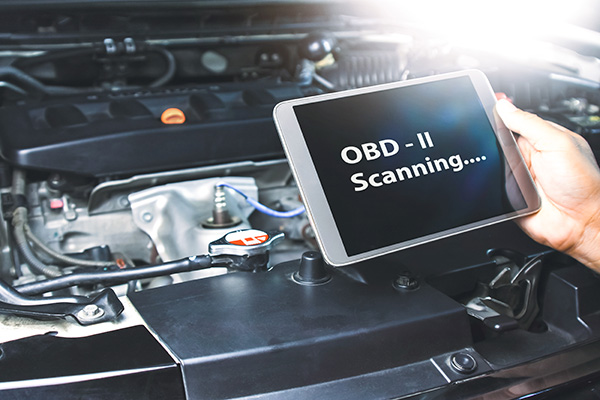
Ever wondered what makes modern cars so efficient, responsive, and smart? Behind all that smooth acceleration, responsive handling, and fuel efficiency is the ECU—short for Engine Control Unit. This piece of technology is essentially the brain of your car, dictating how different components of your vehicle perform. But what exactly does the ECU do, and why is it so important to your car's overall performance?
What Is the Engine Control Unit (ECU)
The ECU is a microprocessor-based system that acts as the command center for your vehicle. Think of it as the car's onboard computer, responsible for managing the engine’s operations and optimizing performance. The ECU ensures your car runs efficiently under all driving conditions, from adjusting fuel injection to managing air-fuel ratios, ignition timing, and even regulating emissions. It's like having a smart assistant that constantly monitors your vehicle’s vital signs and makes real-time adjustments to keep everything running smoothly (without using that forbidden word).
Modern vehicles are equipped with multiple sensors that send data to the ECU, allowing it to make informed decisions on the fly. For example, it can adjust the amount of fuel injected into the engine based on the oxygen levels in the exhaust, ensuring you get the best fuel efficiency possible. Without the ECU, cars would be far less efficient, less responsive, and more prone to breakdowns.
How the ECU Manages Fuel Injection
Fuel injection is one of the most critical functions controlled by the ECU. Back in the day, cars relied on carburetors to mix air and fuel, but this system was far from efficient. The ECU revolutionized this process by using sensors to determine the optimal fuel-to-air ratio, injecting just the right amount of fuel into the combustion chamber. This maximizes fuel efficiency, reduces emissions, and improves engine performance.
When you press down on the accelerator, the ECU reads your input, calculates the demand for power, and adjusts the fuel injection accordingly. It considers factors like engine temperature, throttle position, and even altitude to make sure your car gets the exact amount of fuel it needs. This precise control is why modern cars can achieve impressive fuel economy and still deliver a responsive driving experience.
The Key to Power and Efficiency
Ignition timing is another critical area in which the ECU makes a huge impact. For an engine to run efficiently, the spark plug must ignite the fuel-air mixture perfectly. If the spark occurs too early or too late, it can lead to knocking (a pinging noise caused by premature combustion) or even damage to the engine. The ECU uses sensors to monitor engine speed, load, and temperature, adjusting the timing of the spark to optimize power and fuel efficiency.
For instance, during heavy acceleration, the ECU can advance the timing slightly to boost power output. On the flip side, when cruising at a steady speed, it can retard the timing to save fuel. This dynamic adjustment is why modern engines are both powerful and efficient, giving you the best of both worlds.
How the ECU Controls Emissions
With stricter emissions standards around the world, the ECU plays a crucial role in reducing your car’s environmental footprint. It does this by managing the air-fuel mixture, monitoring the exhaust gases, and adjusting the engine’s performance to minimize harmful emissions. For example, it can adjust the fuel injection or activate the Exhaust Gas Recirculation (EGR) system to reduce nitrogen oxide emissions, which are harmful to both human health and the environment.
The ECU also works in conjunction with the catalytic converter, which is responsible for converting harmful pollutants into less harmful emissions before they exit the exhaust system. The ECU helps reduce your car’s carbon footprint without sacrificing performance by ensuring that the engine runs at optimal efficiency.
Diagnosing Car Problems
The ECU isn't just about controlling performance; it also acts as a diagnostic tool. If something goes wrong with your car, the ECU can detect the issue and trigger a warning light on your dashboard. This is where the OBD-II (On-Board Diagnostics) system comes into play. Mechanics can plug a diagnostic tool into your car’s OBD port to read error codes generated by the ECU, helping them pinpoint the issue quickly and accurately.
Common issues like misfires, faulty oxygen sensors, or even transmission problems can all be diagnosed with the help of the ECU. Monitoring the data from various sensors can detect anomalies and alert you before they turn into serious problems. This not only saves you time and money on repairs but also ensures your car stays in top condition.
Is your car not performing like it used to? Get a comprehensive diagnostic check at The Car Guys, where we’ll ensure your ECU and engine are in top shape.